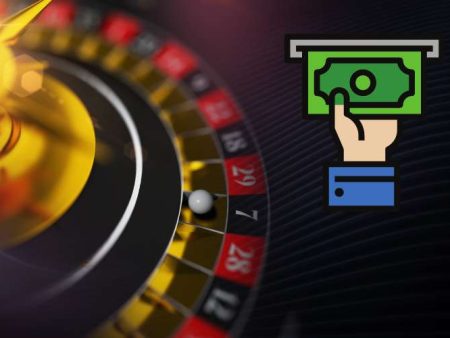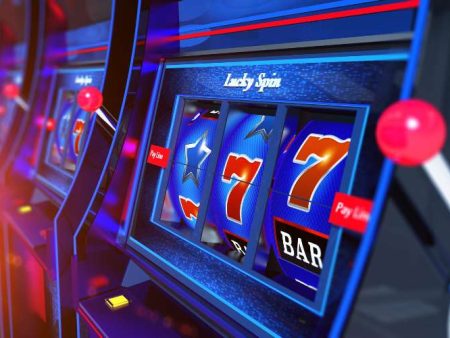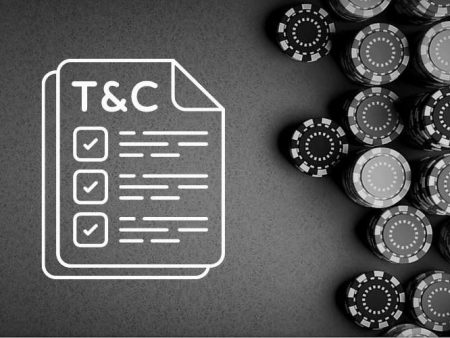
What's on this page
In the United Kingdom, gambling income is generally not taxable for individual players. This exemption applies regardless of the type of gambling activity, whether it be betting on sports, playing casino games, or participating in lotteries. The rationale behind this policy is that gambling is considered a form of entertainment rather than a source of income. Therefore, the winnings that a person accrues from gambling are not treated as taxable income by HM Revenue and Customs (HMRC).
One key reason for this approach is the inherent risk involved in gambling. Since gamblers can lose money as easily as they can win, the government views it as unfair to tax winnings without allowing for the deduction of losses. Consequently, whether you win a large jackpot or just a small amount, you will not be required to report these winnings as income on your tax return.
However, this does not mean that all aspects of gambling are free from taxation. While individual winnings are exempt, the operators of gambling establishments, such as casinos and bookmakers, are subject to various taxes. These include gaming duties and other specific levies designed to ensure that the industry contributes to the public purse.
Is Professional Gambling Considered Trading?
The question of whether professional gambling is considered trading is a nuanced one. In the UK, professional gamblers—those who rely on gambling as their primary source of income—are still not typically regarded as traders for tax purposes. This distinction is important because trading income is taxable, whereas gambling winnings are not.
HMRC maintains that even if an individual devotes a significant amount of time and effort to gambling, it remains an activity of chance rather than a trade. This stance is grounded in the legal and practical difficulty of distinguishing between professional and amateur gamblers based on their activities and winnings.
For instance, a professional poker player who earns a living through tournaments and cash games would still not be classified as engaging in a trade. This is because the element of chance inherent in poker, despite the player’s skill level, means the income is not considered to be derived from a trading activity. The lack of regular, predictable income from gambling further supports this classification.
That said, individuals who engage in activities ancillary to gambling, such as providing gambling advice or operating gambling-related websites, may find themselves subject to tax on these earnings. This is because these activities can be clearly defined as trading or business activities.
When Does Professional Gambling Qualify as a Trade?
Although HMRC generally does not classify professional gambling as a trade, there are exceptional circumstances where gambling-related activities might be considered a trade. This usually involves a clear, systematic approach to gambling that resembles business operations.
One such example is if a person combines gambling with other business activities in a structured and organized manner. For instance, if someone runs a syndicate that collects stakes from multiple individuals and places bets on their behalf, taking a cut of the winnings, HMRC might view this as a trading activity. In such cases, the income derived from managing the syndicate could be subject to taxation.
Another scenario could involve using sophisticated techniques or algorithms to consistently generate profits from gambling. If an individual employs staff, maintains detailed records, and runs the operation like a business, HMRC might argue that this constitutes a trade. However, these situations are rare and would be examined closely by tax authorities on a case-by-case basis.
To summarise, while the default position is that gambling does not qualify as a trade, certain organized and systematic approaches to gambling might attract scrutiny from HMRC. If you are in doubt about whether your gambling activities might be considered a trade, it is advisable to seek professional tax advice.
Should You Keep Records of Your Expenses and Winnings?
While individual gamblers do not have to pay taxes on their winnings, it is still prudent to keep detailed records of both expenses and winnings. Maintaining accurate records can be beneficial for several reasons:
- Proof of Income: Keeping track of your gambling activities can provide proof of income when needed, such as when applying for a mortgage or loan.
- Financial Planning: Understanding your gambling expenditure and winnings can help in personal financial planning and budgeting.
- Avoiding Disputes: If there ever were a query from HMRC regarding the nature of your gambling activities, having detailed records can help clarify that your winnings are not derived from a taxable trade.
For those who gamble regularly, maintaining a spreadsheet or a dedicated ledger to log all bets placed, winnings, and losses is a good practice. Include details such as dates, amounts wagered, types of bets, and outcomes. This not only helps in personal finance management but also provides a clear picture of your gambling activities over time.
Although there is no legal requirement to keep these records for tax purposes, doing so can safeguard against potential issues and support your financial decisions.
What Taxes Do Casino Operators and Bookmakers Have to Pay?
Unlike individual gamblers, casino operators and bookmakers in the UK are subject to various taxes and duties. These taxes ensure that the gambling industry contributes to the public finances. Here are the main types of taxes that apply:
- Gaming Duty: This is a tax on the gross gaming yield of casinos.
- Remote Gaming Duty: Applied to the profits of online gambling operators.
- General Betting Duty: Charged on the gross profits of bookmakers.
- Lottery Duty: Applied to the proceeds of lottery ticket sales.
- Machine Games Duty: Levied on the profits from gaming machines.
These taxes are calculated based on the profits generated from gambling activities, and operators are required to submit regular returns to HMRC. The exact rates and regulations can vary, so it is crucial for operators to stay informed about their tax obligations.
Bingo Duty
Bingo Duty is a specific tax levied on the profits made from bingo games. In the UK, bingo operators are required to pay a duty on their profits, which is currently set at 10%. This duty applies to both land-based and online bingo games.
The duty is calculated based on the gross profits, which is the total stakes received from players minus the winnings paid out. Operators must keep detailed records of all stakes and winnings to ensure accurate calculation and reporting of Bingo Duty.
For operators, it is important to stay compliant with HMRC regulations to avoid penalties and fines. Regular audits and thorough record-keeping can help ensure that all Bingo Duty obligations are met.
Gaming Duty
Gaming Duty applies to casinos and is based on the gross gaming yield (GGY). The GGY is the difference between the amount of money staked by players and the winnings paid out by the casino. The duty is applied on a sliding scale, with rates increasing as the GGY increases.
The current rates for Gaming Duty are as follows:
| GGY Band | Rate |
|---|---|
| Up to £2,686,000 | 15% |
| £2,686,001 to £5,563,000 | 20% |
| £5,563,001 to £8,344,500 | 30% |
| £8,344,501 to £11,130,000 | 40% |
| Over £11,130,000 | 50% |
Casinos must file quarterly returns to HMRC and pay the appropriate amount of Gaming Duty based on their GGY. Proper accounting and record-keeping are essential for accurate reporting and compliance with tax laws.
Remote Gaming Duty
Remote Gaming Duty (RGD) applies to online gambling operators and is charged on the profits generated from remote gaming activities. This duty is designed to capture the revenue from online gambling, which has grown significantly in recent years.
The current rate for RGD is 21% of the profits from remote gaming. Profits are calculated as the amount staked by players minus the winnings paid out and any allowable expenses.
Online operators must ensure they are registered with HMRC and submit regular returns to report their profits and pay the appropriate amount of duty. Failure to comply with RGD regulations can result in significant penalties and legal action.
Lottery Duty
Lottery Duty is a tax on the proceeds from lottery ticket sales. In the UK, this duty applies to both national and local lotteries, including charity lotteries and raffles.
The rate for Lottery Duty is 12% of the proceeds from ticket sales. This duty is collected from the organisers of the lottery, who must ensure that they accurately report and pay the duty to HMRC.
Organisers must keep detailed records of ticket sales and prize distributions to ensure compliance with Lottery Duty regulations. Proper record-keeping and timely submission of returns are essential to avoid penalties and fines.
General Betting Duty
General Betting Duty (GBD) applies to bookmakers and is charged on the gross profits from betting activities. This duty is designed to ensure that bookmakers contribute to public finances based on their betting operations.
The current rate for GBD is 15% of the gross profits from betting. Gross profits are calculated as the amount staked by players minus the winnings paid out.
Bookmakers must register with HMRC, submit regular returns, and pay the appropriate amount of GBD. Compliance with GBD regulations requires thorough record-keeping and accurate reporting of betting activities.
In conclusion, while individual gamblers in the UK are not required to pay taxes on their winnings, the operators of gambling establishments are subject to various duties and taxes. Understanding these obligations is crucial for compliance and avoiding penalties. For individuals who gamble regularly, keeping detailed records can be beneficial for personal financial management and providing proof of income when needed.





